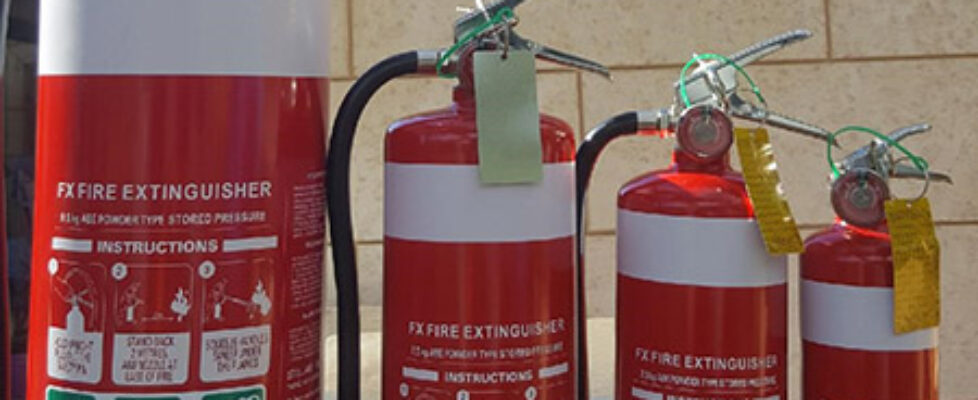In a country like Malaysia, where urban development is growing rapidly and high-rise buildings, industrial zones, and commercial establishments are widespread, fire safety is a top concern. While having fire fighting equipment installed is a vital first step, ensuring these systems are maintained properly is equally, if not more, important. Without regular maintenance, even the most advanced fire fighting systems may fail when they are needed most. This article explores why fire fighting equipment maintenance is crucial in Malaysia and what businesses, property owners, and facility managers should understand about it.
The Fire Risk Landscape in Malaysia
Malaysia’s tropical climate, combined with dense populations in urban centres like Kuala Lumpur, Penang, and Johor Bahru, increases the risk of fires. High humidity and heat, coupled with increased energy consumption and the widespread use of electrical appliances, present ongoing fire hazards. In addition, manufacturing industries and large-scale warehouses operating with flammable materials are particularly vulnerable to fire outbreaks.
In recent years, the Malaysian Fire and Rescue Department (Bomba) has reported thousands of fire incidents annually. Many of these incidents could have been mitigated or avoided altogether with the use of functioning fire suppression systems and fire detection equipment. However, faulty equipment due to a lack of maintenance has frequently been cited as a contributing factor.
Compliance with Malaysian Fire Safety Regulations
Under Malaysian law, especially the Uniform Building By-Laws 1984 and the Fire Services Act 1988, all commercial and public buildings must be equipped with fire fighting equipment and must ensure its functionality through regular inspections and servicing. Bomba conducts periodic audits and inspections to verify that premises are fire-safe. Failure to comply with these regulations can result in penalties, including fines, business shutdowns, or even imprisonment.
Proper maintenance ensures that businesses remain in compliance with these regulations. Regular servicing, testing, and certification of fire extinguishers, hose reels, fire alarms, sprinklers, and emergency lighting are all part of the mandatory requirements for building occupancy.
Key Fire Fighting Equipment that Requires Regular Maintenance
- Fire Extinguishers
Extinguishers must be inspected monthly and serviced annually. Maintenance includes checking pressure levels, inspecting for leaks or corrosion, and ensuring the hose and nozzle are unobstructed. - Fire Alarm Systems
These need to be tested regularly to confirm they will activate in the event of smoke or fire. Sensors, control panels, and batteries must all be functioning optimally. - Automatic Sprinkler Systems
Sprinklers must remain free of blockages and corrosion. Valves, pumps, and water supply connections should be tested to guarantee immediate response during a fire. - Emergency Lighting and Exit Signs
During a fire or power outage, these guide occupants to safety. Without regular battery checks and bulb replacements, they may fail when most needed. - Fire Hose Reels and Hydrants
These systems require pressure testing and flow testing to ensure adequate water supply. Faulty reels or jammed hoses can render the system ineffective.
Consequences of Neglecting Maintenance
The cost of failing to maintain fire fighting equipment can be catastrophic. Aside from legal penalties, there’s the risk of:
- Loss of Lives: Non-functional equipment during a fire can lead to preventable fatalities.
- Property Damage: Fires that could have been extinguished quickly may cause extensive structural damage.
- Business Disruption: Recovery from a fire incident can take months or even years, with lasting impacts on reputation and revenue.
- Insurance Issues: Insurance providers often deny claims if it’s found that fire fighting systems were not properly maintained.
Benefits of Regular Fire Equipment Maintenance
- Early Detection and Quick Response
Maintained systems help detect fires early and suppress them before they spread, reducing the risk of injury and damage. - Peace of Mind
Building occupants, whether residents, employees or customers, feel safer knowing that fire safety equipment is reliable. - Cost Savings
Preventive maintenance helps avoid costly repairs or complete equipment replacement and reduces the risk of fire-related losses. - Extended Equipment Lifespan
Like any machinery, well-maintained fire fighting equipment lasts longer and functions more efficiently.
Partnering with Certified Fire Safety Providers
It is essential to engage certified fire safety contractors in Malaysia to handle your fire equipment maintenance. These professionals understand local fire codes, use the right tools, and provide proper documentation and certification after each service. They can also offer advice on upgrading or replacing outdated equipment to meet current safety standards.
Look for maintenance companies registered with BOMBA and certified under ISO or CIDB for additional assurance. Professional fire safety providers will also keep proper maintenance logs, ensuring you have proof of compliance during inspections.
Conclusion
In Malaysia, fire fighting equipment maintenance is not just a matter of legal compliance—it is a critical safety responsibility. Ensuring that all fire safety systems are regularly serviced and operational can mean the difference between a minor incident and a devastating disaster. Whether you manage a small retail shop or a large commercial complex, maintaining fire fighting equipment should always be a top priority.
Protect lives, safeguard property, and ensure business continuity—invest in regular fire safety equipment maintenance today.
